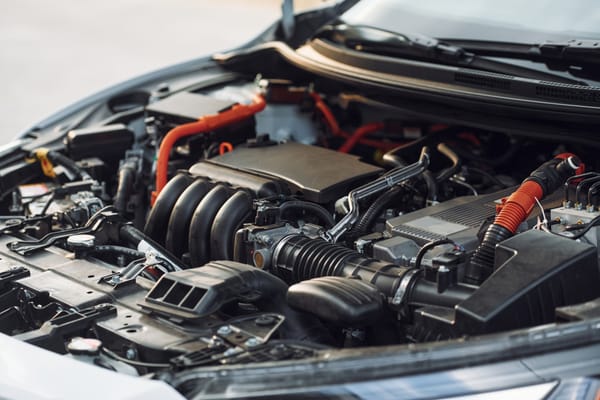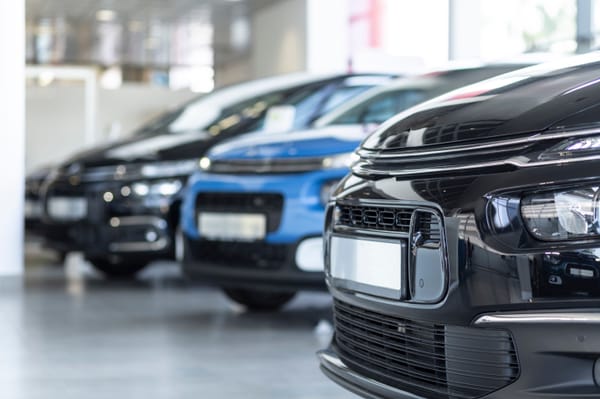Feeling the Economic Pinch? The Smart Kenyan's Guide to Downsizing Your Car

The cost of living in Kenya is a hot topic in almost every WhatsApp group right now. We all remember when a full tank of fuel didn’t require a small prayer and a budget review meeting. Today, with the price of everything from unga to electricity going up, our wallets are feeling the squeeze.
You save for a rainy day, and it starts raining immediately 😩. Before you know it, bills are piling up. After rent, for most people, their car is often number one on that list.
That big, beautiful SUV that was perfect for road trips and turned heads on the road might now feel like a financial burden. And for some, downsizing to a smaller car is the only way they can manage – this is no longer a sign of failure—it’s a smart, strategic financial decision.
But before you rush to sell your ride, let's break down how to do it right.
Why Are Some Kenyans Downsizing?
The "why" is simple: costs. The primary driver for most people thinking of downsizing in Kenya is the brutal combination of high fuel prices and expensive maintenance.
That V8 guzzler is a lot less fun when bei ya mafuta makes you think twice about visiting a friend across town.
Switching to a smaller car, or "right-sizing" your ride, is about aligning your vehicle with your current financial reality.
Before You Downgrade: Do the Real Math
Is downsizing automatically cheaper? Mostly, yes. But it’s not just about the fuel. You need to look at the total cost of ownership.
Calculating Your Current Car's True Cost
Think about what you really spend per month on your current car:
- Fuel: This is the obvious one. How many shillings per kilometre are you burning?
- Insurance: Larger, more expensive cars have significantly higher comprehensive insurance premiums.
- Maintenance: A German machine might be a dream to drive, but the cost of its spare parts can give you nightmares. Compare that to the cost of parts for a Japanese hatchback.
- Parking: In Nairobi, some parking lots charge more for larger vehicles like SUVs.
The Hidden Costs of Making the Switch
Before you celebrate the savings, factor in the costs of the change itself:
- Depreciation Hit: If you sell your current car in a hurry, you might get a lowball offer, losing a significant chunk of its value.
- Transfer Costs: There are fees and stamp duty involved in buying another car.
- "New" Car Problems: Buying a used car can be a gamble. You might save on fuel but get hit with an unexpected KSh 80,000 bill for a gearbox repair. (This is why getting pre-inspected used cars is non-negotiable).
Key Factors for Choosing Your New, Smaller Ride
Okay, you’ve done the math and decided to proceed. Haina shida. Now comes the important part: choosing the right small car.
Fuel Efficiency is the New King
This is your top priority. Moving from a 2500cc SUV to a 1300cc hatchback will instantly cut your fuel bill by half, or even more. This is where models like the Toyota Vitz, Mazda Demio, or Nissan Note shine. They are champions of fuel economy, and you can learn more about how to maximise it in our guide to boosting your car’s fuel efficiency.
Maintenance and Spare Parts
A car is only as affordable as its upkeep. Before you fall in love with a unique-looking import, ask yourself: "Can my local mechanic fix this? Are the parts available and affordable?"
- Stick to popular brands: In Kenya, you can rarely go wrong with Toyota, Nissan, and Mazda. Their parts are everywhere, and every mechanic knows them inside out.
- Find a good mechanic: A trustworthy mechanic is worth their weight in gold.
Your Actual Lifestyle Needs
Don't just buy the smallest car available. Priorities ni your real-world needs.
- Daily Commute: Is it just you, or are you doing the school run with three kids?
- Family & Usago: Do you frequently travel upcountry with family and luggage? A hatchback might be efficient, but a compact sedan or a small crossover like a Toyota Rush might offer a better balance.
- Your Hustle: Do you have a side business that requires you to carry goods? Boot space is a crucial factor.
Safety Isn't a Luxury
Downsizing should not mean compromising your safety. When looking at smaller cars, make sure they are equipped with essential safety features.
- Check for the basics: Look for cars with at least two airbags and ABS (Anti-lock Braking System).
- Read reviews: See how the car model you're interested in performs in safety ratings. Understanding your car's features, including what the dashboard warning lights mean, is also part of being a safe driver.
The Smart Way to Make the Switch
Downsizing is a powerful move, but only if you do it without losing money unnecessarily. Panic-selling your current vehicle is the fastest way to get a bad deal.
The best approach is to get a fair, data-driven valuation for your current car first. This gives you a clear picture of your budget. At Peach Cars, we can give you a transparent valuation and handle the sale for you, ensuring you get its true market value.
Then, you can browse our inventory of fully inspected, cost-effective cars with confidence, knowing they have no hidden mechanical issues.
Ultimately, downsizing your car is about taking control of your finances. It's a proactive step towards building financial stability in tough economic times.
Ready to make a smart switch?
📞 Chat with us directly on WhatsApp at +254 709 726 900
🌐 Or start by getting a free valuation for your current car at peachcars.co.ke/sell.




